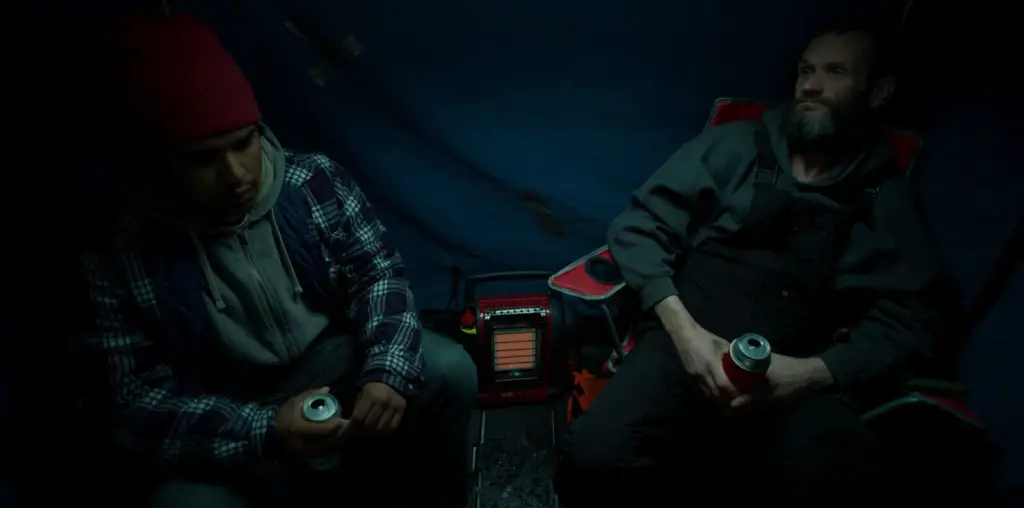
This movie has been lauded for its “authenticity,” but to my eyes it felt closer to a grand guignol horror film. Admittedly this may be because I have, I am relieved to say, been spared a life of brutalization, rape, obesity, extreme poverty, and enforced illiteracy. But it’s also because “Precious: Based on the Novel Push by Sapphire” is shot in the manner of a grueling horror picture, with jittery edits to half-remembered traumas and glistening close-ups on the faces of monsters.
“Precious” is the second film by Lee Daniels (his first was “Shadowboxer,” unseen by me, and he also produced “Monster’s Ball”), a director who is not afraid to show a newborn baby getting tossed around like a sack of sand. The direction sometimes verges on the bathetic, but it certainly evokes the emotional responses it’s going for.
The title character, Precious Jones (Gabourey Sidibe), is a 300-pound girl attending high school in Harlem in 1987. The period details aren’t all that strictly observed (New York didn’t have Metrocards then, for one thing), but it doesn’t detract from the film much.
Precious’s life is essentially a nightmare, and her name seems like a cruel joke, because the people who named her certainly didn’t consider her worthy of protection or preservation. Her father raped her almost from the cradle, and she’s now pregnant by him for the second time. Her mother (played by Mo’Nique) is horrifically abusive in almost every imaginable way, constantly hurling heavy objects at Precious’s head to knock her unconscious, roaring non-endearments (“You dumb fuckin’ BITCH”), asking accusatory questions (“You think you is too good for the welfare?”), and giving officious advice (“And don’t let it get cold because cold-a*s pig’s feet is nasty as s**t!”).
A concerned principal gets Precious into an alternative school, where a caring but exhausted literacy teacher (Paula Patton) learns that she can neither read nor write. A social worker named Ms. Weiss (Mariah Carey) helps her break away from her mother and confront the abuse.
The major supporting performances are in almost every case spectacular. Mo’Nique, in particular, becomes a true monster — a character who seems to embody and epitomize evil, who for much of the film’s running time is a figure nearly impossible to reconcile with the concept of human compassion. She’s like a snapping turtle or a wasp, something that can only inflict pain, and we cringe whenever her character speaks, or stands, or even turns her gaze on Precious. I’d be doing a disservice by describing too much of her final scene, but I will say that it’s absolutely riveting, and if I remember one thing from the film ten years from now, it’ll be that scene. I call this a four-star film for her performance alone.
Mariah Carey, completely deglamorized, is also startlingly good as the social worker who can’t disguise her shock when Precious casually reveals that her first child’s name is Mongo, short for Mongoloid. Carey’s acting-is-reacting work in her scenes with Sidibe is as subtle as Mo’Nique’s performance is fiery.
It’s also worth mentioning that the actresses playing Precious’s classmates at the literacy class are terrific, especially Xosha Roquemore as Joann and Angelic Zambrana as Consuelo.
Gabourey Sidibe has the most difficult task. Precious Jones isn’t very smart in any traditional sense because she’s never had the opportunity to become smart. She’s never had a real formal education, she’s gorged with poisonous food, and what potential she may have had for intellectual curiosity was strangled early on. This makes her a tragic character, but one whose skull is hard to inhabit with any kind of consistency. Voiceover narration helps, but the fact that Precious mostly communicates in grunts or via partially intelligible mumbling makes it a challenge to understand what she’s even getting at in certain scenes.
No matter. The horrors inflicted on the character are no less jarring and memorable, and her struggle to break away from her mother and care for her children is no less compelling.

